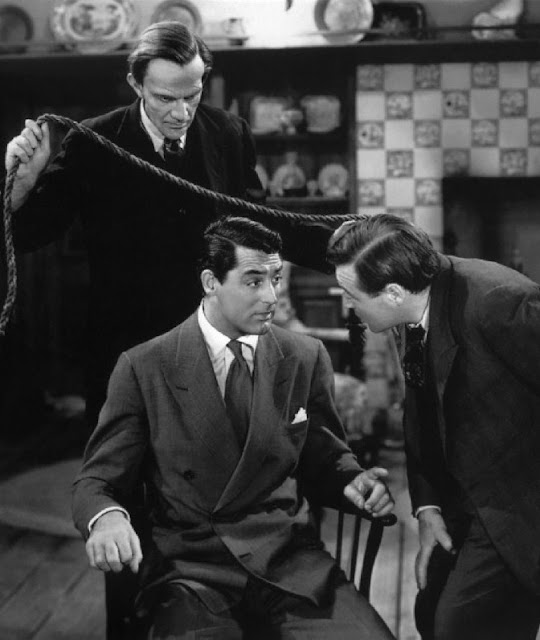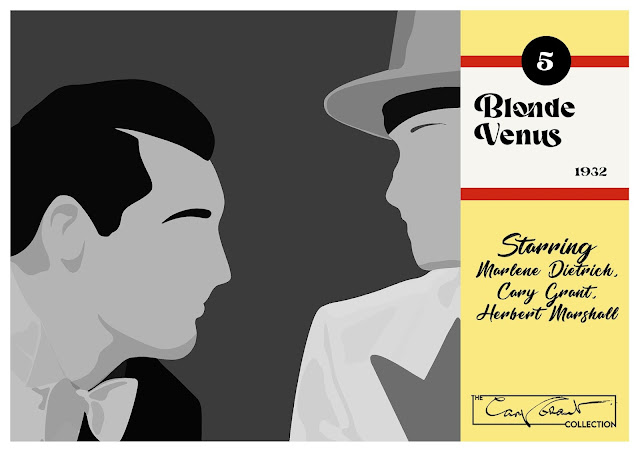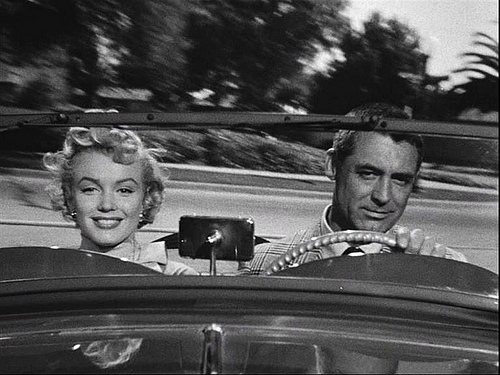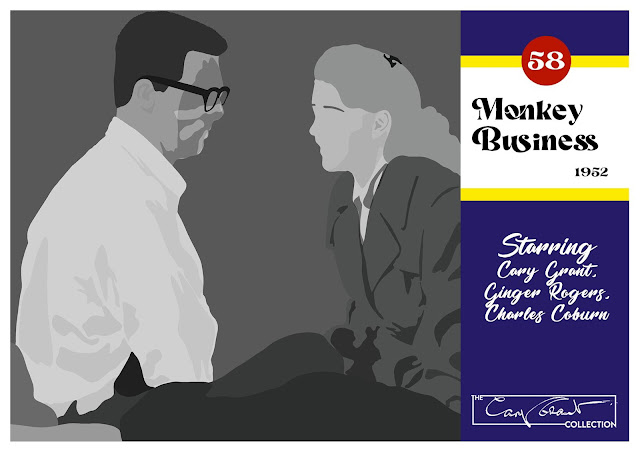"...a superb blend of horror and comedy..."
 |
| With Raymond Massey and Peter Lorre. |
Arsenic and Old Lace - Review is taken from 'The Films of Cary Grant' by Donald Deschner (1973):
"My favorite scene is the one from the picture Arsenic and Old Lace which begins with Cary Grant making the spine-chilling discovery that his two dear old maiden aunts are poisoners who have murdered some dozen men.
The old ladies' sweetly matter-of-fact attitude toward their gruesome hobby is a superb blend of horror and comedy, and the scene develops uproariously.
I was helpless with laughter as I watched Cary change from a normal young man to a decidedly dizzy one, talking to himself, staring into the window seat from which bodies mysteriously appeared and disappeared, and making various wild attempts to cope with the situation."
- Ida Lupino, Saturday Evening Post
 |
New Artwork by Rebekah Hawley at Studio36 - Number 47 - Arsenic and Old Lace (Lobby Card Style) |
Part Of
For more, see also:
Quote From Today - September 23 2022
On This Day - September 23 2021















